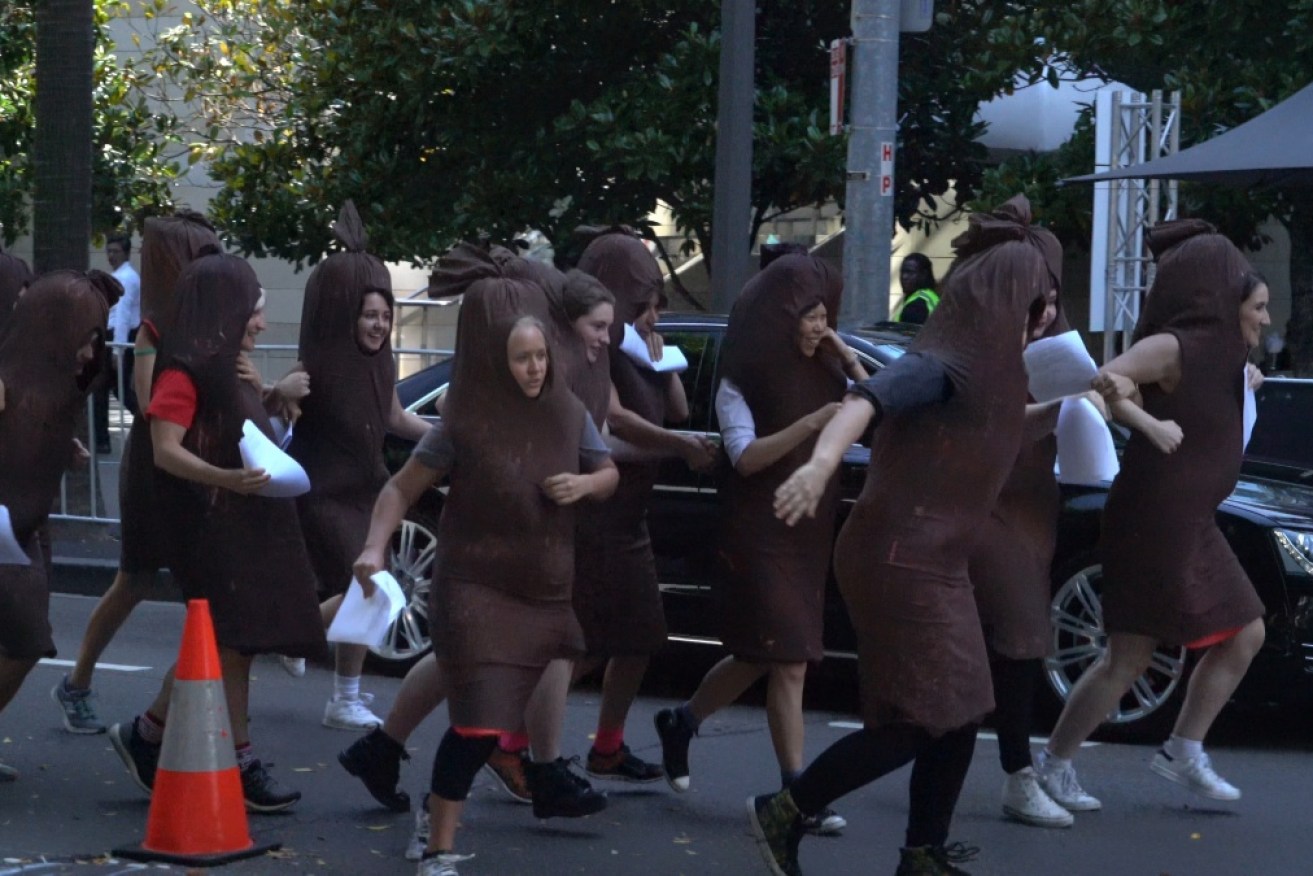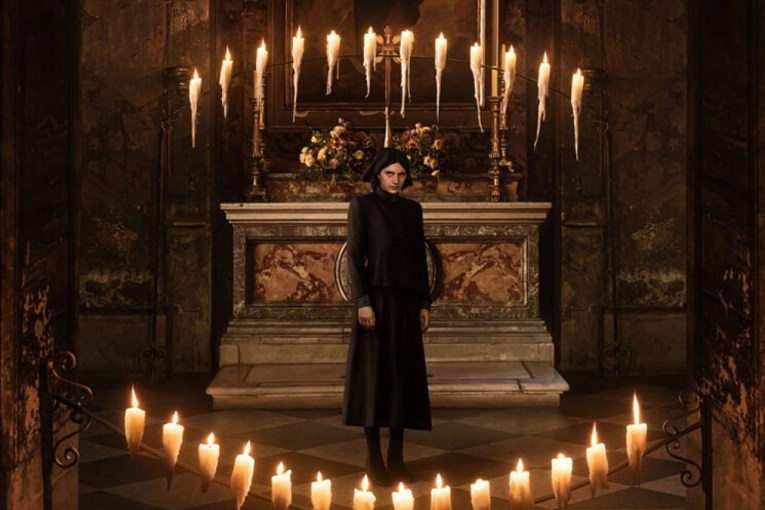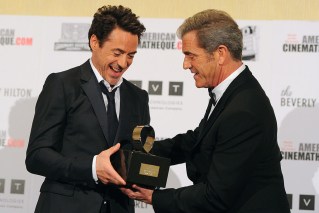The sausage protesters were right – the film industry does have a problem with women


Members of WIFT storm the AACTA red carpet as sausages. Photo: Supplied
They may have been dressed in sausage costumes, but the women who gatecrashed the AACTA Awards red carpet in a protest against the lack of female representation in the industry had a very serious point.
Resembling a group of large bratwursts, members of Women in Television and Film (WIFT) told confuddled media they were protesting the disproportionately low number of AACTA-nominated films directed by women.
“We’re actually here, dressed appropriately for Australia’s biggest sausage party,” they said.
“We’re really calling on AACTA to serve up some more transparency in their really poor gender performance.”

Sophie Mathisen said she was given “a stern talking to”, but no arrests were made. Photo: AAP
President of WIFT Sophie Mathisen told The New Daily that of 28 narrative films pre-selected for an AACTA, just two (or seven per cent) were directed by women.
Ms Mathisen said WIFT was made up of young female filmmakers disillusioned by the bias they perceived in the industry.
“We’re all just releasing our first feature films, and to see that Australia’s night of nights is celebrating such a small monitory of content … we’re literally being ignored,” she said.
The sausages, who were eventually removed by security and police, demanded the six-year-old AACTA Awards increase its transparency as to who selects nominations, and why.
They want the awards to release demographic information of jury, including race and gender, and guarantee at least 50 per cent female representation.
They also questioned how seven films were nominated without meeting stated selection criteria, and argued the selection process was skewed against films that utilise alternative distribution means – more often than not women.
Outside Australia, the issue of female representation in front of the camera was last week highlighted by new research from the Geena Davis Institute on Gender in Media at Mount Saint Mary’s University, Los Angeles.
The Geena Davis Inclusion Quotient found that of the top-grossing Hollywood films in 2014 and 2015, just 17 per cent had female leads.
The gender gap only widened in male-led films, while in female-led films, male and female characters spent roughly the same amount of time on screen.
In films with co-leads, such as traditional romantic comedies, men took up 58 per cent of screen time.
Depp and Smith win unenviable accolade
With women struggling just to get screen time, Forbes has released its annual list of most overpaid actors – a list that men dominate.
Led by Johnny Depp, who has suffered a string of box office disappointments as well as a nightmare year personally, the top 10 contains just one woman.
Forbes calculated the box office totals of each star’s last three (non-animated) films, and compared that number with how much they were being paid, finding that Depp gave the least return on his paycheques.
Depp’s recent films made just $2.80 in tickets sales for every dollar he took home – almost twice as bad as next on the list, Will Smith.
Rounding out the top 10 of bad box office investments were Mark Wahlberg, Leonardo DiCaprio, Adam Sandler, George Clooney, Will Ferrell, Channing Tatum and sole female representative Julia Roberts.
Comparatively, Jennifer Lawrence, who has been a strong champion for gender equality and pay transparency in Hollywood, generated an impressive $41.60 in ticket sales for every dollar she was paid in her last three films.









